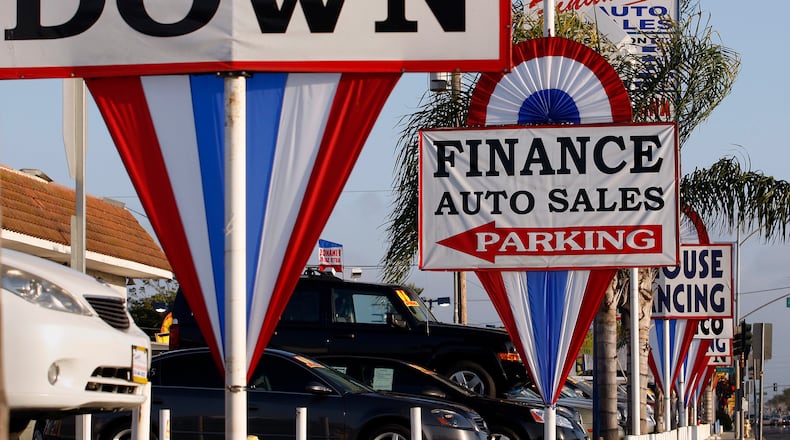It’s not over yet, but used-car lobbyists may once again be winning the battle to keep the General Assembly from changing how their clients’ vehicles are taxed when they are sold to Georgians.
And once again, provisions that they say would raise taxes on used-car buyers appear to be dying in the Georgia Senate, which has been the graveyard for such legislation in the past.
Earlier this year, the used-car lobby credited Lt. Gov. Casey Cagle, the Senate’s president, a leading candidate for governor and the beneficiary of big political contributions from car dealers, for killing the changes in the past.
A Georgia Senate tax subcommittee on Wednesday struck a provision from House Bill 327 that would have charged used-cars buyers the state's motor vehicle tax based on the sales price of the car or truck sold by a dealer.
New cars are currently taxed based on sales price, whereas used cars are taxed at the lower “book value.”
So, if somebody buys a used car for $10,000 and owes the current 7 percent tax, but the state values the vehicle at $8,000, that person pays the taxes on the $8,000, not on what he or she paid for it. The difference in taxes would be $140 in that scenario.
New-car dealers — who also sell about 40 percent of used cars in the state — have lobbied the past few years to see the state use the same basis — the sales price — for taxing both new and used cars. The House has supported the change in the past — as it did again this session in HB 327 — but the Senate hasn't.
State Sen. John Albers, R-Roswell, the chairman of the subcommittee taking up the bill, said the provision was removed from HB 327 because there was "no consensus" among his colleagues about whether to support it.
He promised the bill's author, state Rep. Shaw Blackmon, R-Bonaire, that he would work with him on the issue in the future.
While used-car lobbyists didn’t speak at the hearing, Ben Jordan, a lobbyist for the Georgia Automobile Dealers Association — which represents new-car dealers — thanked Blackmon for “efforts to bring more fairness and transparency” into the system. He called the difference in the basis for taxing new and used cars the “used-car loophole.”
Blackmon did much the same.
“Without closing that loophole you are leaving the gaming of the system,” Blackmon said. “It is going to continue being an issue we will have to deal with.”
The Bonaire Republican said he’s tried to work with senators to fix what he sees as a problem.
“I think we have made several overtures with respect to the used-car loophole, and they are all compromises that were summarily rejected,” he said.
Blackmon noted that the Senate panel also stripped a provision that would have lowered the tax rate on both new and used cars from 7 percent to 6.75 percent.
“It is good for Georgians if we are able to lower the rates on all vehicles,” he said.
The fight comes out of changes lawmakers made in 2012 when they eliminated the “birthday tax” — or property taxes — on cars after Georgians buy them. That legislation eliminated sales taxes as well, replacing them with a new title tax.
But new-car dealers weren’t pleased that their customers would pay the fee based on the higher formula while used-car dealers’ customers could use the book value.
One of the weapons both sides have used has been the checkbook.
During the six months leading up to the start of the session, about 75 auto dealers — some who back and some who oppose the legislation on car taxes — contributed about $145,000 to Cagle's gubernatorial campaign.
Car dealers have also been major donors to a political fund created by Cagle supporters and long run by his campaign fundraiser.
After the House approved the bill last month, Mo Thrash, a lobbyist for used-car dealers, said, "We look forward to Lt. Gov. Casey Cagle and the Senate once again stopping the tax increase on all used-car consumers as they have done in the past."
Cagle typically doesn’t talk publicly about legislation pending before the Senate. While he plays a major role in deciding what gets to the chamber for consideration, and what it looks like when it gets there, he doesn’t actually vote on it.
Cagle flexed his political muscles earlier this month when he promised to nix a proposed tax break that benefited Delta Air Lines after the company announced it would end discounts to National Rifle Association members.
Within two days of Cagle tweeting his vow to kill the tax break, the Senate Rules Committee struck it from a bill.. The next day the House and Senate passed the bill, without the airline tax break.
About the Author
Keep Reading
The Latest
Featured




